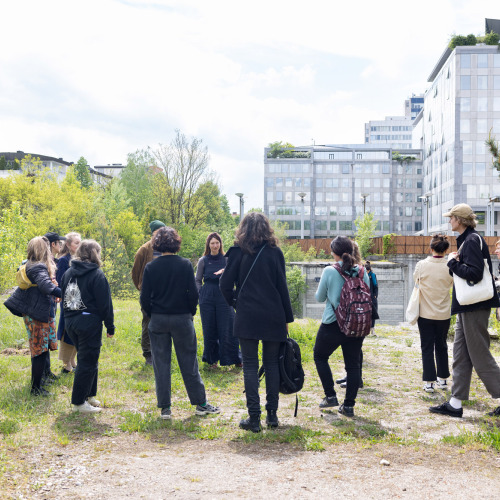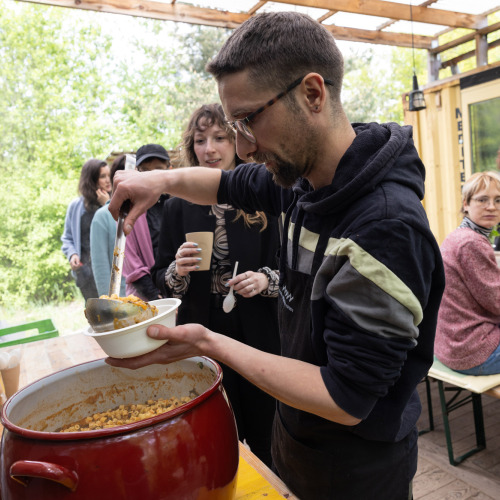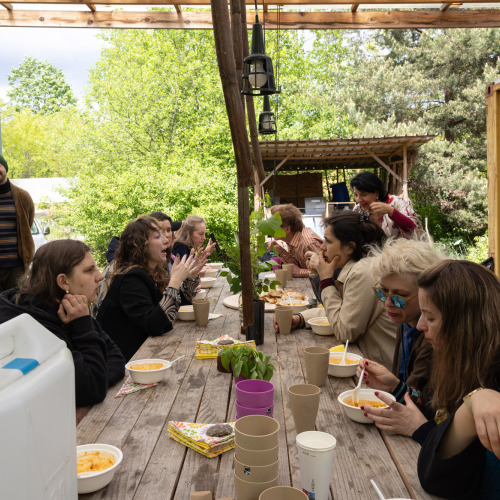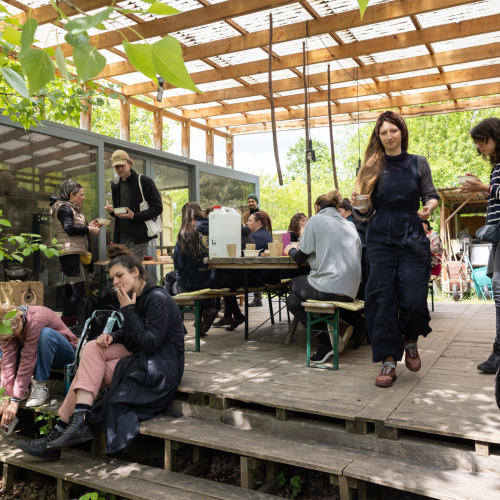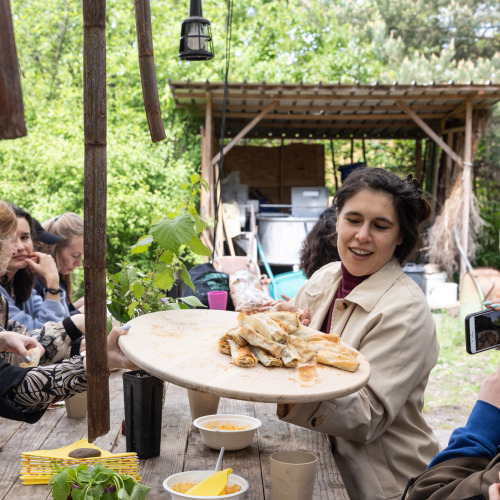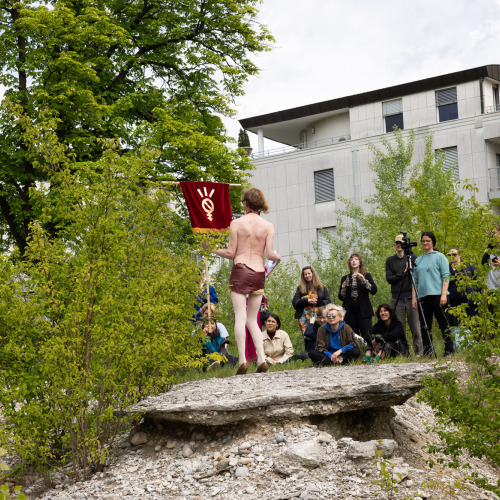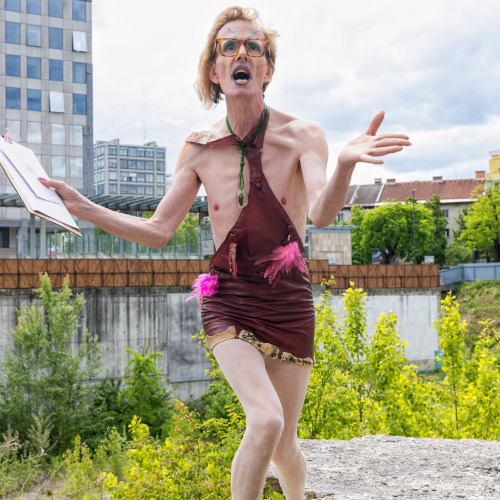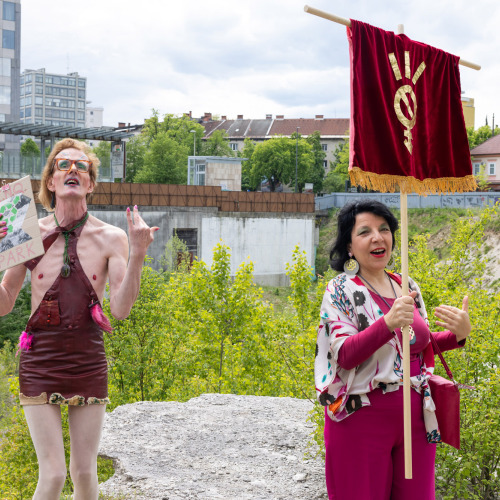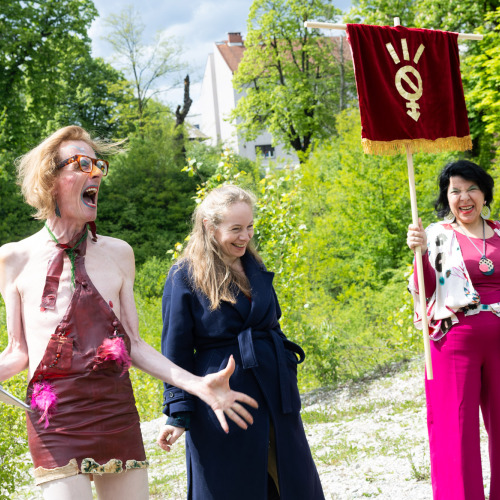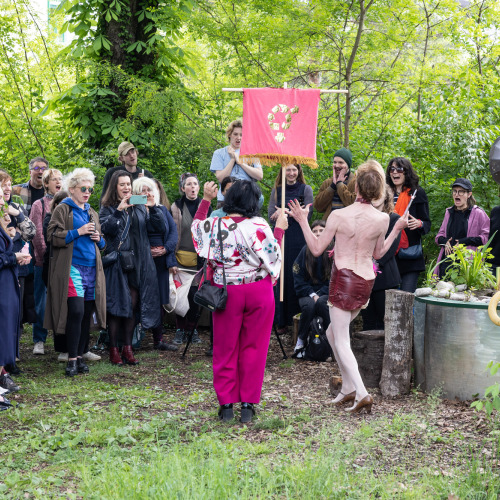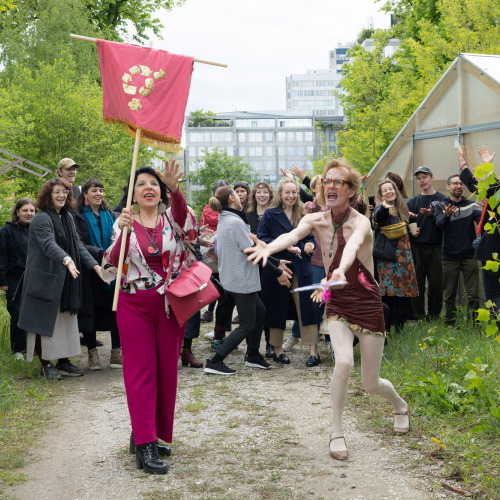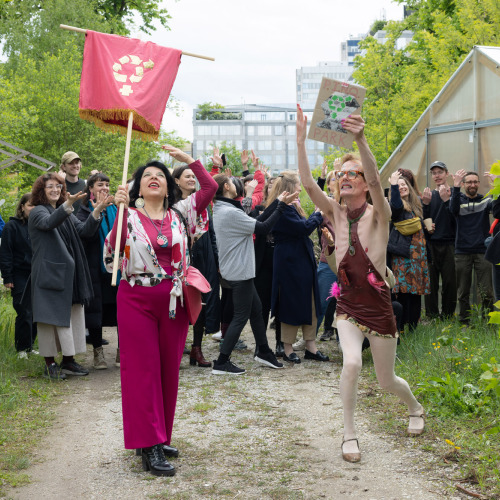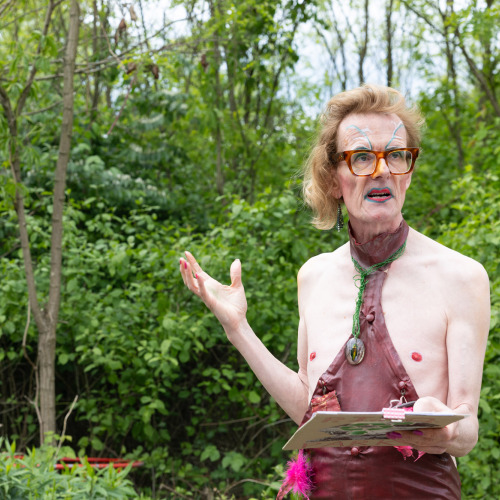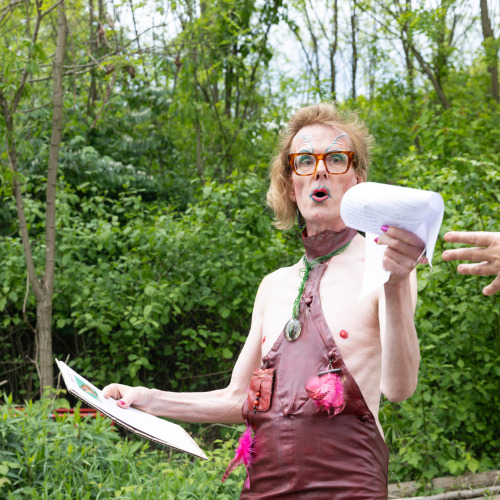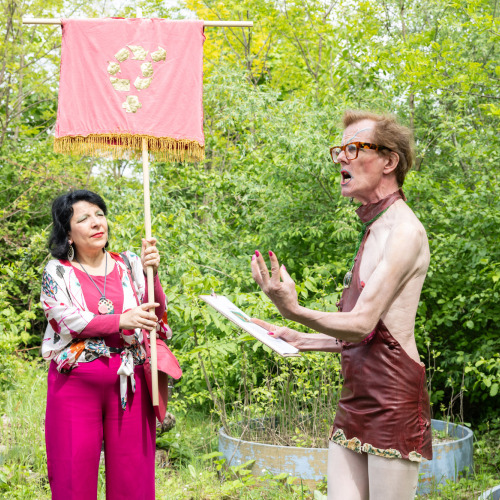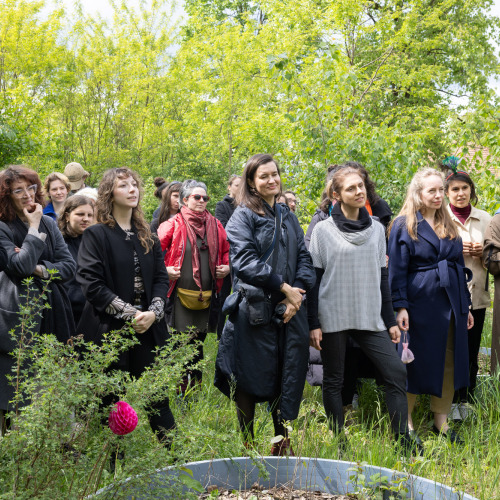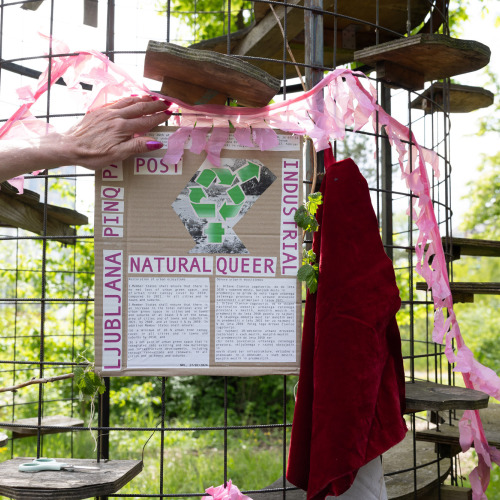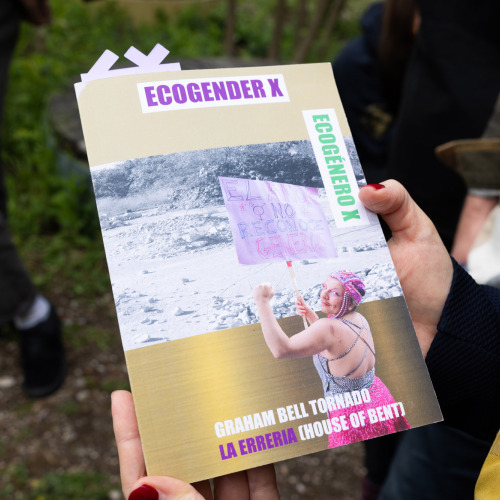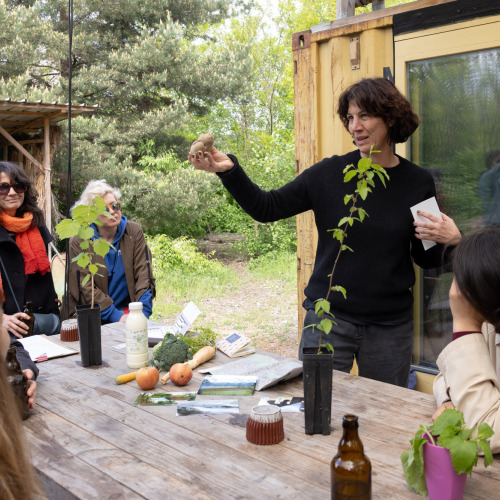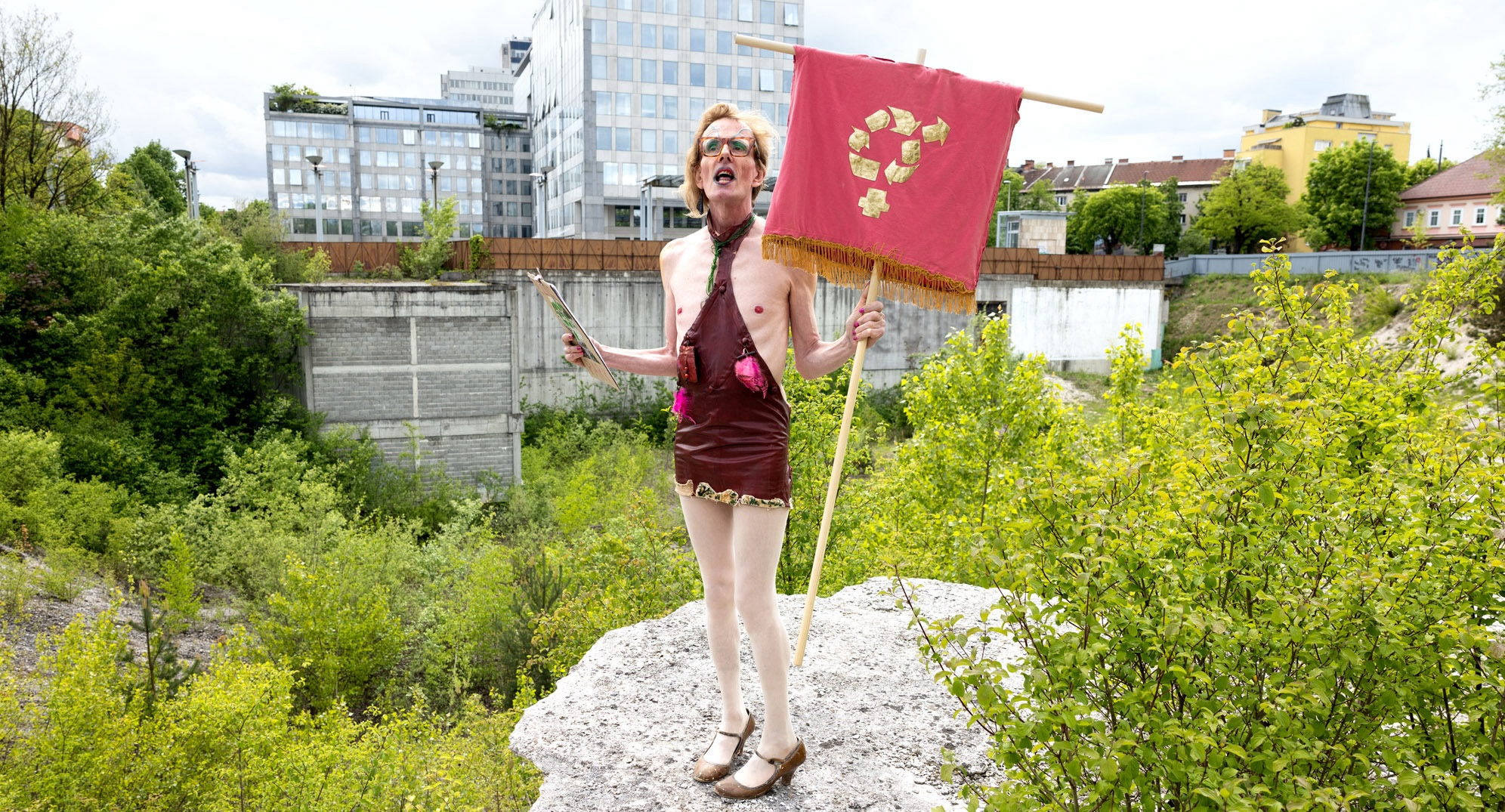

Krater field visit
Reflecting on the 5th part of the Connecting Lines: International Conference on Ecology, Feminism and Care; Krater Field Visit
Within the framework of the TRACTS and City of Women international conference Connecting Lines: International Conference on Ecology, Feminism and Care, we tried to bring together discourses on gender equality and care in the deteriorating conditions of the late Anthropocene. The final of the five parts of Reflections begins with a contemplation on the connection between ecology and queer theory and practice. We refer to the performance by the artist Graham Bell Tornado, who created a piece titled Ljubljana. P.I.NQ. Park Opening Ceremony as part of the ecofeminist conference. We concluded the final part with a meditation titled There are Many of Us and We Move in the World by Growing Rhizomes by artist Liliana Zeic.
In the second part of Reflecting, we critically examined the discourse linking women with nature. The argument against LGBTIQ+ minorities often hinge on the claim that their sexual orientation or identity is unnatural or anti-natural, typically based on arguments of reproduction. In their work Ecogender X, the artist Graham Bell Tornado, working in Valencia, writes that queers have often embraced transgression and artifice in rebellion against heteronormative society, identifying with an image of ourselves as decadent and anti-natural beings (Tornado, 17). According to Bell Tornado, urban areas historically offered more anonymity for personal expression, leading many LGBTIQ+ communities to migrate to urban environments, and thus queers have been robbed of their connection with nature (Tornado, 17). Through their performance, the artist aimed to restore the connection between human queer individuals and the more-than-human world, which, when viewed without a heteronormative lens, also reveals itself as queer. After all, »homosexual behaviour occurs in more than 450 different kinds of animals worldwide« (Bruce Bagemihl, Biologucal Exuberance: Animal Homosexuality and Natural Diversity, as cited in Bell Tornaro, 19). To the dualisms discussed in other parts of Reflecting (nature/human, irrational/rational), we thus add the dualism of heterosexuality/queer, highlighting the tension between compulsory heterosexuality and all other divergent paths. The queer ecofeminist perspective advocates that this binary has become part of the dominant identity, and "dismantling this dualism is a crucial project of ecofeminism" (Greta Gaard, 119).
Through their artistic practice, creating networks of natural reserves marked by ceremonious rituals as P.I.N.Q. (Post Industrial Natural Queer), Graham Bell Tornado seeks to revive and draw attention to abandoned, marginalized spaces that society has discarded, set aside, forgotten, or excluded from official histories and narratives. These spaces, along with their human and non-human inhabitants, create a sanctuary for the artist, with the ceremonial ritual artistically linking these areas and restoring their visibility, importance, and parallel story. Krater, an artistic laboratory on the site of a construction pit near Bežigrad Court, similarly holds the status of an abandoned, forgotten place. In 2020, this abandoned construction site came to life and became accessible to the public. The community working there maintains urban pioneer plant species, conducts various workshops such as paper and wood workshops, and organizes artistic events. By following Graham Bell Tornado's ritual of reviving forgotten more-than-human species, Krater gained the status of the first P.I.N.Q. park outside of Spain.
You can watch how the gathering at Krater unfolded and how it was followed by Liliana Zeic's meditation at the MSUM premises in the video below.
Gaarrd, Greta. »Toward a Queer Ecofeminism«. In: Hypatia. Vol. 12. nb.1. (Winter, 1997), p. 114-137.
Tornado, Graham Bell. Eco_genderX Xativa, House of Bent. Spain, 2019.


